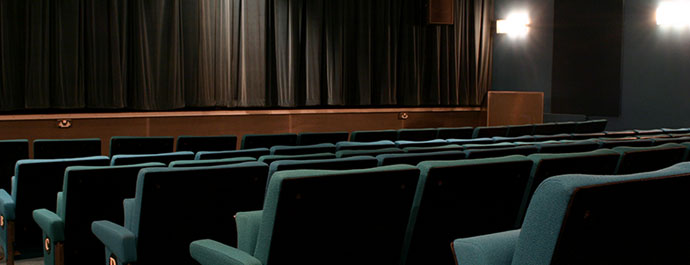The summer programme at ARC’s cinema

As ARC Programme Coordinator, I do lots of things. I work with artists coming in to perform or make work here, I work with other venues as our associate artists tour the country, and I work with independent cinema programmer Gareth Negus to curate and programme ARC’s 131 seat cinema. We’ve just launched our really exciting summer cinema programme, which is a great example of the variety of films we screen at ARC.
ARC’s artistic policy, in brief, is that we try to present work which is contemporary and relevant. Work that helps us understand and enjoy the world as it is today, which looks forward, and which excites us about the future.
The films chosen for ARC’s cinema absolutely adhere to that policy. However, as the only cinema in Stockton, we feel a responsibility to make as many kinds of film experiences available as possible. I think the range of films we’re screening over the summer really demonstrates our commitment to a diverse programme.
Across just one week in August, we’re going to be screening Greek black comedy Chevalier, Hollywood blockbuster Star Trek: Beyond, brand new family film Ice Age: Collision Course, Michael Moore’s blistering new documentary Where to Invade Next and, (in my opinion…) Stanley Kubrick’s finest work, the majestic Barry Lyndon from 1975.
As well as simply screening these films, we’re committed to make the films available to be seen in a way which is most suitable and comfortable for our audiences.
Every Saturday and Tuesday morning across the summer (and every Saturday and Tuesday morning in every school holiday from now on!) at 11am, is a screening of a family friendly film.
The tickets for these screenings are cheaper and the atmosphere is really lovely. I was in our family screening of Disney’s terrific Zootropolis a few weeks ago – and it was fantastic to see so many young people and families taking in a movie together.
The Tuesday morning screenings differ slightly to the Saturday screenings in that they are designated as relaxed screenings, designed specifically for people with additional access requirements. The lights will be on lower, the sound won’t be quite as loud, we can remove the hassle of queuing (if you let us know in advance) and there will be a “Chill Out” safe space to use if anyone needs to step out.
Where possible, films here at ARC will have audio description services available, and we’re dedicated to making at least two screenings a week include subtitles for the hard of hearing.
Two screenings a week (Wed & Thurs at 2pm) will continue to be Silver Screenings, allowing over 60s to attend for £3.50.
Finally, ARC Film Fans is a strand of our programme that takes place every other Tuesday evening, and it primarily takes the form of a post film discussion group. Open to anyone attending that evenings screening, you can come to the film, take it in, and then stay behind to talk about how you found it.
My partner and I see a lot of films together, and talking about it on the way home, or in the pub afterwards, or over breakfast the next morning, is absolutely one of my favourite things. Her understanding of a character or plot point might be radically different to mine, so when we talk I often have my perception altered, and I think that’s great. We really wanted to capture the spirit of that here at ARC, and in the discussions we’ve had so far, being able to hear and speak to people of different backgrounds, ages and experiences has been incredibly enlightening.
The films screened at Film Fans might also depart slightly from the usual programme, with one off screenings and guest speakers having taken place, with more planned. You can find more information about Film Fans screenings, including the next films included in the programme, here.
I’m really excited about the summer programme we have here. You can find it here. In this climate of multi-million pound superhero films, and sequels (though nothing against either…!) I’m really proud to have a programme that includes both the big budget Hollywood titles and the beautiful smaller releases. It’s important.
By Daniel Mitchelson, Programme Coordinator